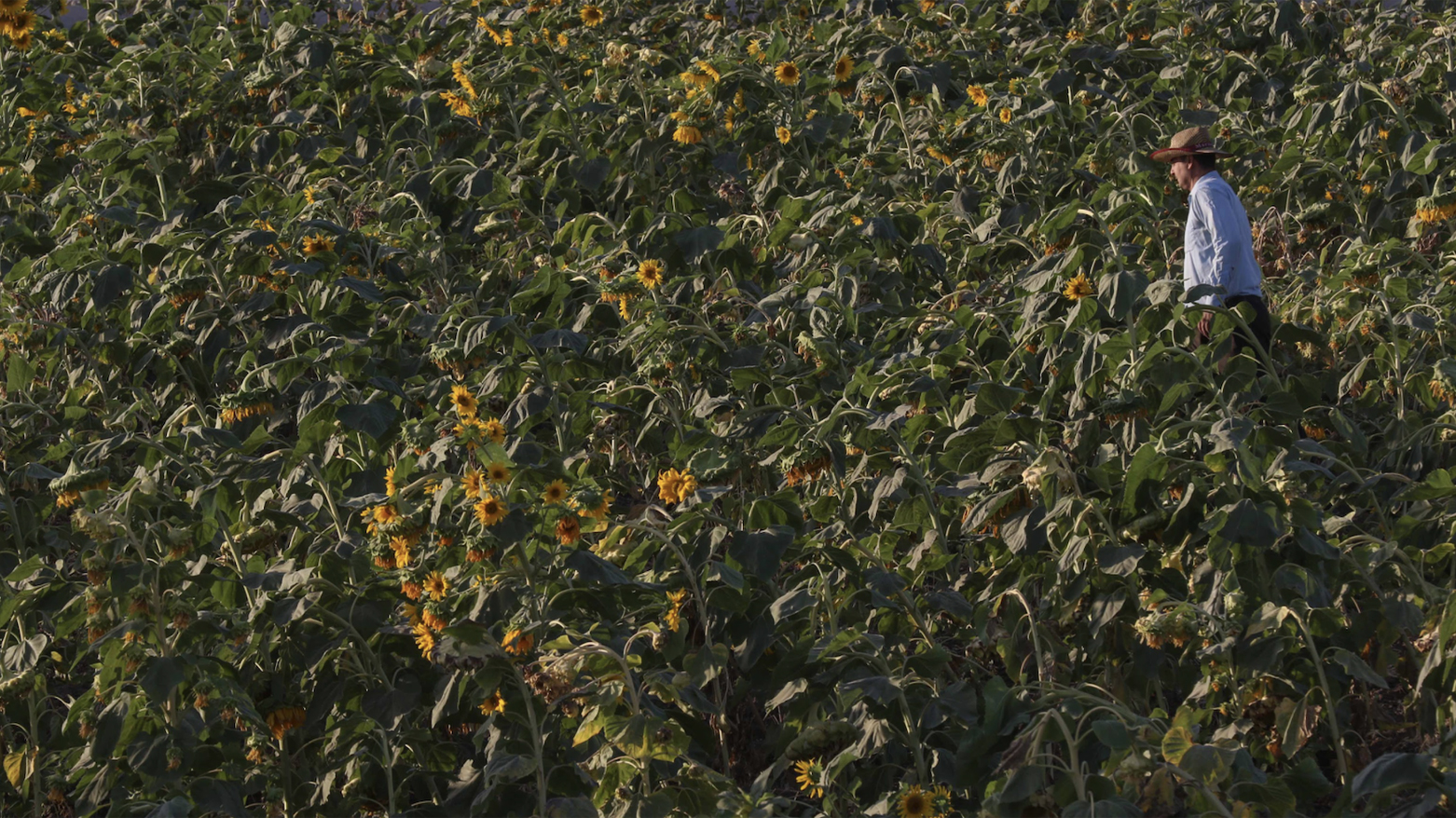KRG’s Investment Wave Transforms Farming Into an Emerging Industrial Sector
KRG boosts the agricultural sector with a new corn factory in Duhok processing 23,000 tons annually, alongside 3,000 new greenhouses and a major international expo.

ERBIL (Kurdistan24) – In a decisive shift toward economic self-sufficiency and industrial modernization, the Kurdistan Regional Government (KRG) has launched a comprehensive strategic overhaul of its agricultural landscape, turning what was once a traditional farming economy into a burgeoning hub of agro-industrial investment. This transformation is visibly embodied in the rapid expansion of processing capabilities across the Region, exemplified by the success of the first regional factory dedicated to drying yellow corn.
Established four years ago in the Duhok governorate, this facility stands as a testament to the Ninth Cabinet’s unwavering commitment to reviving the agricultural sector, serving as a cornerstone in a broader government plan that has opened the doors wide for private sector engagement to support farmers and bolster local industry.
The yellow corn drying factory in Duhok represents a critical link in the agricultural value chain, processing crops purchased directly from farmers at subsidized prices to ensure their financial stability. Amanj Niyazi, the owner of the factory, provided detailed insights into the operation during an interview with Kurdistan24.
"We collect these products from all over Kurdistan, especially from the plains of Erbil," Niyazi explained, highlighting the cross-governorate cooperation that fuels the facility. The scale of the operation is significant, with Niyazi noting that they started working in the corn cultivation plain and now collect approximately 18,000 to 23,000 tons of yellow corn annually from local farmers.
Currently, the output of the factory serves a foundational need within the domestic market. "Yellow corn is used here for animal feed purposes only," Niyazi stated, though he pointed to the untapped potential of the crop, adding that "in other countries, it is also used in the pharmaceutical and other product industries."
The facility itself is a work in progress, designed to scale up over time. Niyazi confirmed that they worked on establishing the factory in three distinct stages; having finished the first stage, they have advanced with two additional stages, with the factory's full operational capacity expected to be completed in the near future.
This specific project is not an isolated endeavor but part of a strategic government plan currently being implemented to encourage the receipt of farmers' products and support the processing industry. The KRG has actively prioritized policies that bridge the gap between field and factory.
According to data from the Ministry of Agriculture, the percentage of investment in agricultural processing industries has seen a marked increase in past years, reaching 10 percent. Hiwa Ali, an advisor in the Ministry of Agriculture and Water Resources, told Kurdistan24 that reports from the last three years confirm that investment in the agricultural sector has increased significantly.
Ali elaborated on the tangible outcomes of these policies, explaining that the government of the Ninth Cabinet has been able to address the long-standing concerns of farmers regarding market access and crop spoilage. This has been achieved by establishing many advanced processing factories, including facilities for potato products, tomato products, and olive oil production.
Furthermore, Ali revealed that a cheese factory is currently under construction, signaling a diversification into dairy processing. To support this industrial ecosystem, the KRG has taken decisive action to bolster infrastructure, deciding to establish 3,000 greenhouses and 312 refrigerated stores.
These facilities, in addition to the establishment of new silos and dozens of other projects, are designed to extend the shelf life of local produce and stabilize market prices throughout the year.
The domestic resurgence in agriculture is occurring in tandem with a major push to integrate the Kurdistan Region into the global market.
As reported by Kurdistan24, Erbil on Monday hosted the opening of the Erbil International Agro-Industry and Packaging Expo 2025, the region’s largest international exhibition dedicated to grain, plastic packaging, agricultural industries, and food production.
The event has brought together a staggering 352 companies from 20 countries, including Iran, Türkiye, India, China, and several European Union member states. Hoshmand Mohammed, the exhibition’s organizer, noted that this eighth annual event is the biggest of its kind in the Kurdistan Region and Iraq, with a primary goal of strengthening the Region’s economic visibility.
The synergy between local production and international exposure is evident on the expo floor. Of the 352 exhibitors, 62 are local companies showcasing goods produced entirely within the Kurdistan Region. These products range from basic agricultural inputs to finished goods ready for export, demonstrating the maturity of the local market.
The expo reflects the broader strategic trajectory adopted by the KRG to strengthen food security, reduce import dependency, and position the Kurdistan Region as a competitive agro-industrial hub in the Middle East.
Over the past decade, the KRG has increasingly emphasized economic diversification as a necessary response to fluctuating oil revenues and regional uncertainties, with agriculture and food processing emerging as core pillars of this stability strategy.
By investing in irrigation systems, modern storage facilities, seed quality improvement programs, and farmer subsidies, the government is driving both yield and efficiency. The presence of global industry leaders at the Erbil expo creates direct channels for technology transfer and joint ventures, which are key components of the government’s long-term development plan.
As the corn factory in Duhok expands its operations and thousands of visitors flock to the agro-industry expo in Erbil, the message from the Kurdistan Regional Government is clear: the transition from a consumer market to a producer economy is well underway, fueled by sustained investment and a robust partnership between the public and private sectors.